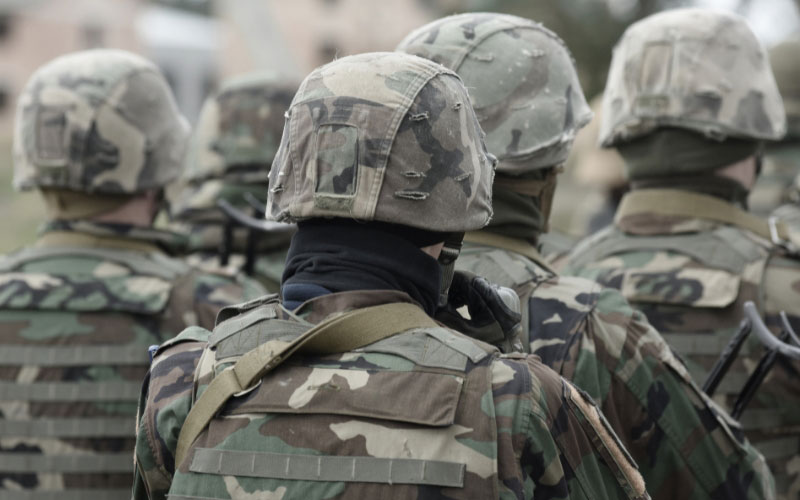The men and women of the U.S. military are on the front lines of psychedelic research.
For the first time, the National Defense Authorization Act – more commonly known as the annual Defense Spending Bill – includes funding to study the efficacy of psychedelics for treating service members who suffer from PTSD or traumatic brain injuries.
Title VII, Section 723 of the 2024 National Defense Authorization Act directs Secretary of Defense Lloyd Austin to establish a funding mechanism for federal and state agencies and academic institutions that are conducting research on the treatment of eligible members of the U.S. Armed Forces. Austin also must designate a lead administrator for the program no more than 180 days after the bill takes effect.
The Senate and House of Representatives passed the Defense Spending Bill for fiscal-year 2024 earlier this month.
Under the psychedelics provision, the secretary of defense can authorize any member of the Armed Forces diagnosed with PTSD or a traumatic brain injury to participate in a clinical trial that uses federal funding awarded through the new program.
Psychedelics covered in the funding program are MDMA, psilocybin, ibogaine, 5-MeO–DMT and “qualified plant-based alternative therapies.”
The psychedelics provision is a modified version of the Douglas ‘Mike’ Day Psychedelic Therapy to Save Lives Act of 2023. U.S. Rep. Dan Crenshaw, a Texas Republican, introduced the legislation in May. The bill’s namesake, Mike Day, served 21 years as a Navy SEAL, and took his own life earlier this year.
More Treatment Options Needed for Veterans
The provision in the National Defense Authorization Act comes as Crenshaw and others are raising awareness of veteran suicides and pushing for more treatment options for veterans suffering from PTSD, traumatic brain injury, addiction and other conditions.
Crenshaw actively sought support for the bill from groups such as Veterans Exploring Treatment Solutions (VETS), a nonprofit founded by retired U.S. Navy Seal Marcus Capone – who underwent psychedelic treatment – and his wife, Amber. VETS has provided grants for hundreds of U.S. Special Forces veterans to receive psychedelic-assisted therapy treatment outside the United States.
In a statement, VETs said the psychedelics provision in the National Defense Authorization Act “will now begin assisting in moving the needle forward in making psychedelic-assisted therapies more accessible to veterans and active-duty military personnel.”
“The inclusion of psychedelic research in the NDAA marks a pivotal turn in our journey to revolutionize mental health care for our military,” said Amber Capone, co-founder and CEO of VETS. “The unwavering support and dedication of our community, combined with the collaborative efforts of policymakers like Rep. Crenshaw, have been instrumental in achieving this milestone.”
Within one year of the Defense Spending Bill’s enactment, the secretary of defense is required to submit a report to the Committees on Armed Services of the House and Senate on various aspects of the psychedelics program, including the agencies and institutions that received funding, the clinics that participated in the program and the findings of the clinical trials.
Biden is expected to sign the spending bill into law.

